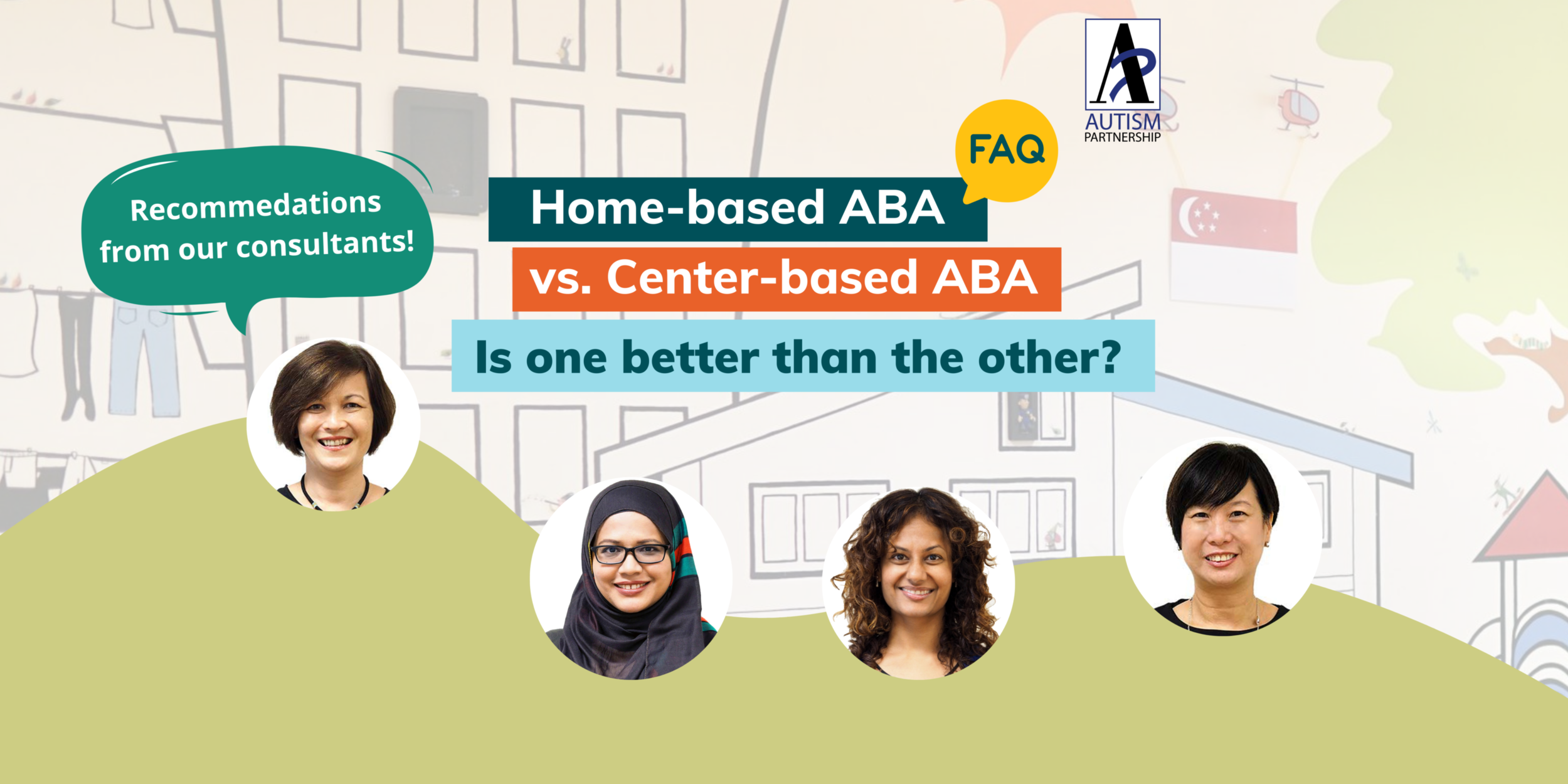Frequently Asked Questions (FAQs): Home vs Center ABA
A common question parents have when enrolling their child in an ABA therapy program is the location for treatment. Often, parents wonder if having ABA treatment at home is better than the center-based option and vice versa. In our previous article, we covered the benefits of ABA therapy at home vs. center.
As every child with autism has unique needs, there is no standardized treatment plan, and your behavior consultant will make recommendations based on your child’s needs. This FAQ acts as a guide to provide insights into common situations faced and is not meant to be strictly followed unless recommended by your child’s behavior consultant.
FAQ: My child is 3 years old and has been recently diagnosed with ASD. We would like to start ABA therapy but we are not sure if we want home-based or centre-based.


Typically, we highly recommend an intensive clinic-based program, especially for young children below the age of 5 who are about to start therapy.
A full-day clinic-based program will ensure intensity and consistency and give a boost in treatment. Compared to the home setting, the child has no learnt history in the clinic setting. This will help to expedite some of the leaning goals as we are starting off the therapy process in a neutral setting. Combined with the quality ABA we provide, this will allow your child to build a strong foundation for learning.
Another benefit of starting in the clinic setting is that clients can have access to a wide range of teaching resources and reinforcement. These materials may not be readily available in the home setting.
In addition, having therapy in a clinic setting also allows for some early exposure to potential social opportunities.
Of course, parent/caregiver training is also a critical part of intervention and can be provided at home or in the centre.
Information provided by: Behavior Consultant, Ms Reshani Satharasinghe (MSc ABA, BCBA)
FAQ: I am very concerned as my child is only 18 months old and as much as I would like center-based therapy, I am afraid that he is too young to learn at the center as my child has never been apart from us before.


Transiting to a new environment can be frightening for some children. At AP, we understand your concern. When a child joins us, we will focus on helping the child settle into the new environment. The child is provided with a wide variety of toys/activities to explore, and we allow the child to explore the environment. We engage and play with the child. We will also look into the physical and emotional needs of the child and provide for the child accordingly. All these are done under the care of the therapist and the Supervisor. Besides helping the child settle, we can also look at adjusting the services; e.g., if a child has never been away from his parents, we can start with fewer hours and increase the hours once the child has settled.
The number of hours of therapy will be recommended according to the child's needs, and this is done to maximize the child’s development to try and close the gap as much as possible.
Information provided by: Clinical Director, Ms Wong Mai Shan (BSc Edu)
FAQ: If we choose to do center-based therapy, does it mean that we cannot home-based therapy? What if we change our minds?

Home-based programs are recommended based on the family's needs and a center-based program can be switched to home-based when necessary. An example is parent or caregiver training sessions, where skills such as self-help or toilet training are done at home to ensure consistency and generalisation in the home setting. Depending on the goals of the child's program, the location is interchangeable as required.
Information provided by: Site Director, Ms Sherrianne Cheah (MSc ABA)
FAQ: My child is 5 years old and goes to school in the morning. I want to improve my child’s social skills, can I do therapy at home?

For a child that is already in an appropriate school placement who may need support to improve his social skills, it is recommended to receive center based therapy, which will allow him to do a combination of individual sessions as well as group sessions. This will give the child access to peers and social interaction opportunities to practice social skills learnt.
If parents are keen to have therapy at home, they will need to find multiple suitable peers for playdates so that social skills that has been taught can be applied and generalised well.
Information provided by: Behavior Consultant, Ms Nurhayati Ismail (MSc ABA, BCBA)





